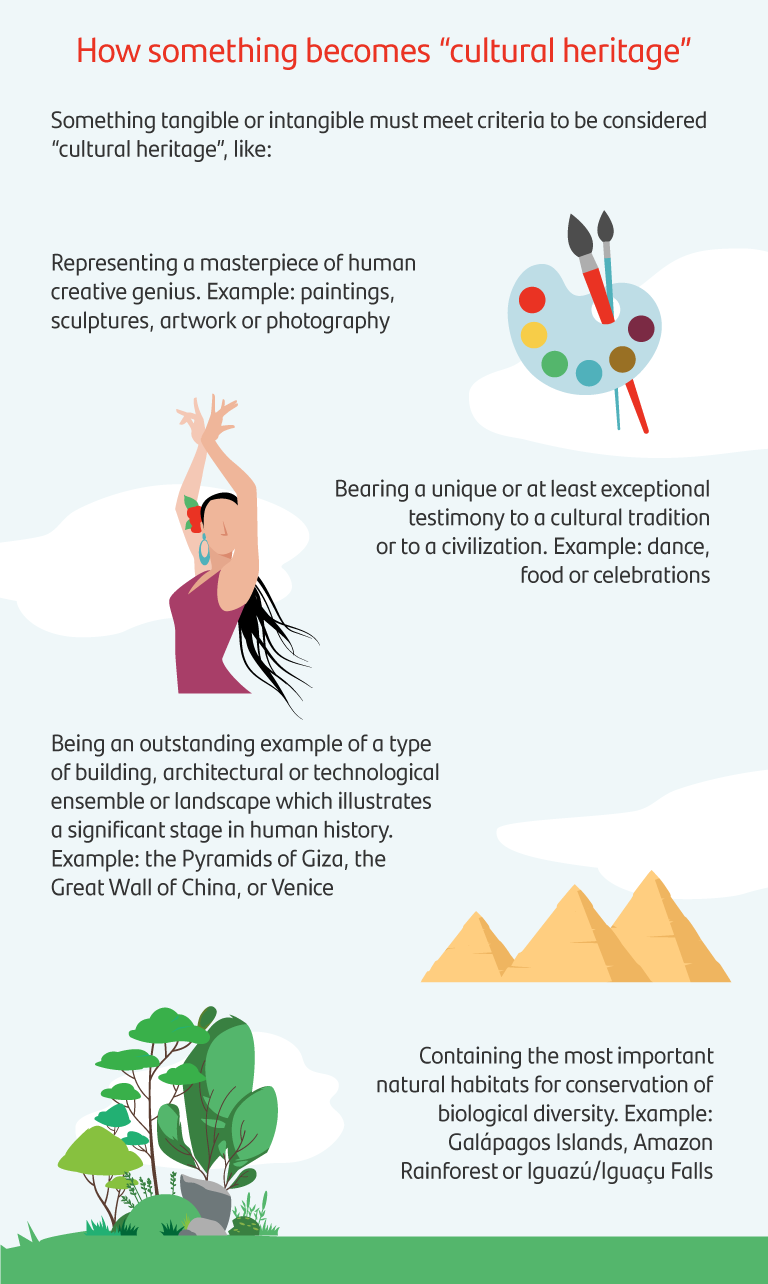Cultural heritage: The economic influence of tradition


The first thing that probably comes to mind when you think about the economy is the traditional exchange of goods (like food or clothing) and services (like public transport). A society’s cultural heritage is also a source of wealth for economic development. Here’s what it is and how you can enjoy it responsibly.
According to the United Nations Educational, Scientific and Cultural Organization (UNESCO), cultural heritage is something that was made by people or by nature and has exceptional value for humanity. It can be something tangible, like a piece of art; intangible, like traditions and cultural activities; or natural, like a landscape or a natural park.

Cultural heritage is important to the economy. It generates income and is considered a good because it can be given economic value. So when you visit museums or ruins, see a play or travel to a historic or natural site, you’re consuming cultural heritage and your money goes to help preserve or fund it.
Countries that exploit traditional or natural assets can generate wealth through tourism, gastronomy, art and other things. The advantages of cultural heritage include job creation, investment and sustainable alternatives to business models that do little to help the environment.
How to consume cultural heritage responsibly
Cultural heritage is irreplaceable. Its value and features are unique. Business created to enjoy cultural heritage should also conserve it for future generations. You also have an important role.
When enjoying cultural heritage, you should:
Cultural heritage is often funded by money paid by visitors. Make sure you buy tickets to a site on an authorized channel. That way, your money will be reinvested in cultural heritage. It’ll also prevent you falling victim to fraud.
If you visit natural parks or ethnic communities, take care not to interfere with their environment or way of life. Don’t take sizeable luggage or things that generate waste. You should buy local products to support the area’s economy.
You shouldn’t take anything from ruins or archaeological sites. What might seem like a nice souvenir or gift probably has unique cultural value. Taking things is detrimental to a place’s culture and economy.
Do research on whatever cultural heritage you’re interested in. Knowing the value of a site, a monument, a public event or a park will help you enjoy it responsibly, understand its significance, support efforts to conserve it, and get more people interested in it.
Remember, cultural heritage preserves tradition and shows us how the world has evolved. When you experience culture and nature, more people will be able to do so in the future.







